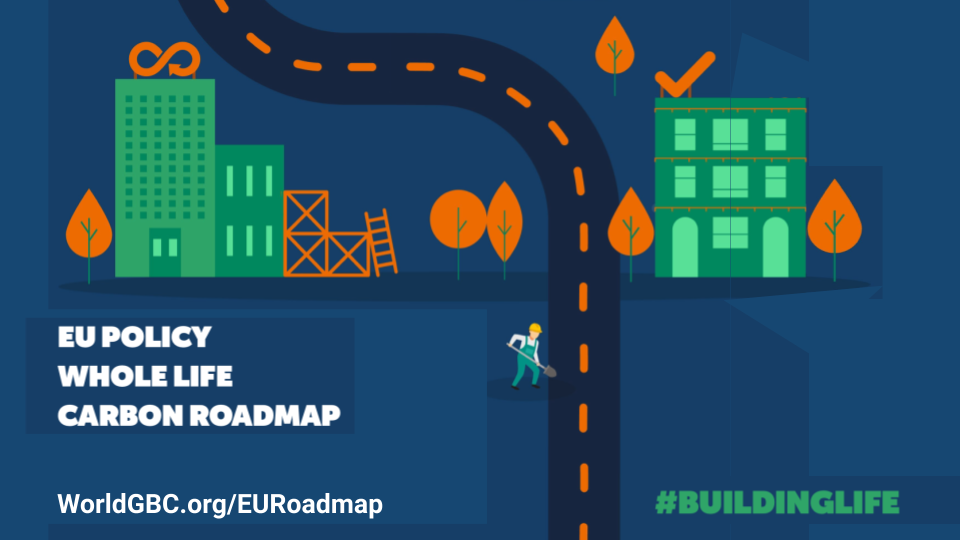
The World Green Building Council (WorldGBC) has unveiled the policy plan for the European Union to accelerate progress on decarbonising buildings and construction, one of the most heavily emitting sectors in the world.
The EU Policy Roadmap has been developed with the support of a coalition of over 35 construction industry bodies through the WorldGBC’s #BuildingLife project. The WorldGBC says the roadmap is the first of its kind at EU scale to address the whole life carbon impact of the built environment, across multiple policy routes.
The roadmap proposes a timeline of recommended actions for EU policymakers to accelerate the decarbonisation of buildings by 2050, tackling both CO2 emissions from their operation, and the long-overlooked impact of emissions from materials and construction.
The WorldGBC says that much of Europe’s building stock is old and inefficient and the European Commission has acknowledged that renovation rates must at least double. The WorldGBC’s roadmap highlights the urgent need for more ambitious policy and financial support to enable energy efficient property upgrades.
Alongside this, buildings are still being constructed using carbon-intensive materials and processes, which sustains the high embodied carbon impact of the sector. The roadmap therefore makes a series of recommendations on how EU policy can enforce the calculation and regulation of emissions across the whole life cycle of a building, as well as measures that will improve the circularity of building materials.
The WorldGBC says that a failure to address this whole life carbon impact of buildings will likely mean the decimation of Europe’s remaining carbon budget, putting the EU Green Deal’s target of climate neutrality by 2050 and the goals agreed by policymakers at COP26 well beyond reach.
The roadmap’s recommendations were developed with input from major business networks and industry associations, as well as environmental NGOs and city networks. Mapped out from now to 2050, they include milestones on how key EU policies and regulations affecting the building and construction sector should be tightened over time.
The report is divided into four key policy routes: Building Regulations; Waste and Circularity; Sustainable Procurement; and Sustainable Finance.
It has further guidance on how EU, national and regional policy makers can align in what they ask of industry, encouraging a multi-level governance approach.
Finally, to ensure effective collaboration with the private sector, the roadmap also spells out ways that companies can support the implementation of the roadmap.
Cristina Gamboa, CEO of the WorldGBC, commented: “Europe’s built environment is responsible for over a third of the region’s carbon emissions. Eliminating these emissions means we are fully tackling both the energy efficiency of the buildings themselves and decarbonising the many material supply chains that the sector relies upon."
Roland Hunziker, director for built environment at the World Business Council for Sustainable Development (WBCSD), said: "To get the construction industry on track to reach global climate targets, all companies need to start measuring the full carbon footprint of their real estate assets.
"WBCSD’s own research has shown that setting explicit targets from the start of a building project and through collaboration along the value chain, emissions could be halved in every building project by 2030. So it’s great to see the strong coalition of supporters backing this roadmap and its call for clear regulatory targets to be developed."
The WorldGBC is a non-profit global network of national Green Building Councils (GBCs), with member councils in over 70 countries worldwide.










